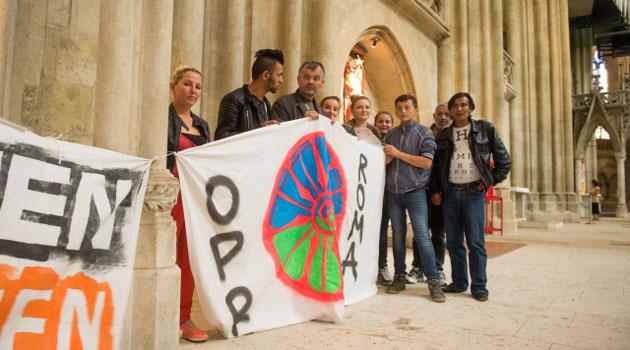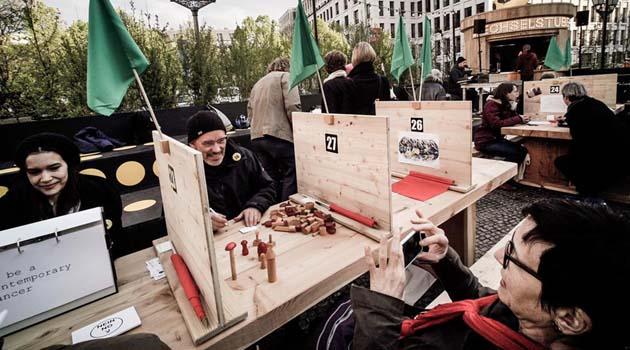Germany: Romani refugees at risk of deportation occupy cathedral in Regensburg

On Tuesday, 5 July, a group of more than 40 Romani refugees from states in the Balkans occupied the cathedral in the Bavarian city of Regensburg on the Danube. The local Catholic parish has decided to leave the refugees in the building and is not requesting police to intervene.
The parish has provided support to the refugees by feeding them and giving them material aid. The group is demonstrating for what it calls the “right to remain” in Germany and protesting against Germany assigning Balkan states to the category of so-called safe states of origin.
Jakob Schötz, spokesperson for the diocese, says the refugees’ request for church asylum has not yet been officially approved. “As a church we are doing what a church can do. The rest is a political matter,” said Vicar-General Michael Fuchs.
“We have accommodated the people, including families with children, in a side room,” Schötz said on 6 July. The refugees have been fed and have been given blankets and field beds by the employees of Malteser International.
According to the online news server Passauer Neuen Presse, local police spokesperson Stefan Hartl said the first night of the refugees’ stay at the cathedral was calm. There was a minor verbal conflict in front of the church between sympathizers of the demonstrators, who set up an information stand at the scene, and some passers-by.
Hartl said police did not have to intervene on that occasion. Wednesday’s negotiations between police and representatives of the Upper Palatinate government and the city of Regensburg resulted in the decision that the unsuccessful asylum-seekers will not be evicted from the church.
“We are in close contact with the church. The diocese did not want police to intervene,” Hartl emphasized.
Hygienic conditions in the church, however, appear to be a problem – there are only sinks and toilets there, not showers – as is the fact that cultural events held for the public are not exactly compatible with the long-term residence of the refugees in the sacred building, according to the parish. Saturday’s youth mass was moved to another church in Regensburg for that reason.
The diocese is offering the refugees the option of moving into the nearby vicarage, where they can also take showers. “We will not place any pressure on them, though,” said Schötz.
Supporters of the refugees held a press conference on Wednesday. The occupation of the cathedral is supported by the organization “Romano Jekipe Ano” of Hamburg, which in May co-organized the occupation of the memorial to the Romani people murdered during Nazism in Berlin.
Police on that occasion agreed with the administrator of the memorial and with the Central Council of German Sinti and Roma to partially use force to disperse that demonstration. “The protest is comprised of asylum-seekers,” Isen Asanovski of Romano Jekipe Ano Hamburg told online news server Regensburg.digital.de about Tuesday’s cathedral occupation.
“We have no other choice. We decided to seek aid in God’s house from Jesus. We are discriminated against in our home countries, our children cannot go to school there. Gravely ill people are not entitled to medical aid there,” Asanovski said.
Church asylum as the last chance
In recent years, thousands of refugees from all over the world have found temporary refuge in hundreds of German churches. So-called “church asylum” in Germany is protected by church law.
The state tolerates this, for the most part, when cases of individual families are concerned. Such asylum, however, must not be abused for political aims.
Several German online news servers have reported that on the territory of the Federal Republic of Germany there are currently 284 churches providing this kind of asylum to a minimum of 452 persons, 108 of whom are children. Last September Romani refugees also occupied St. Michael’s Cathedral in Hamburg, where they remained an entire month before the municipality provided them with substitute accommodation.
Several months later a compromise was reached in the case of those refugees. Five of the families were permitted to remain in Germany while two had to return to their home countries.
